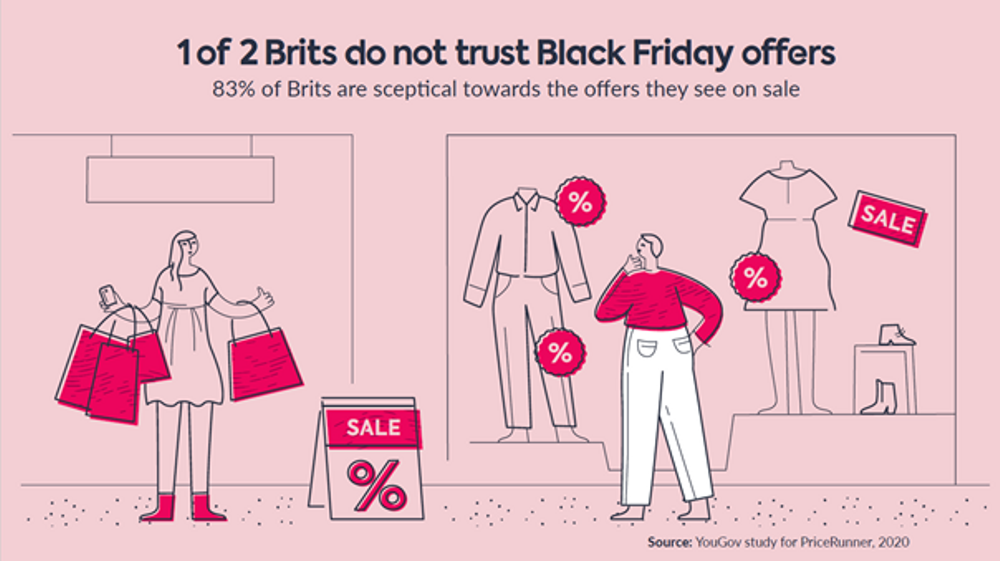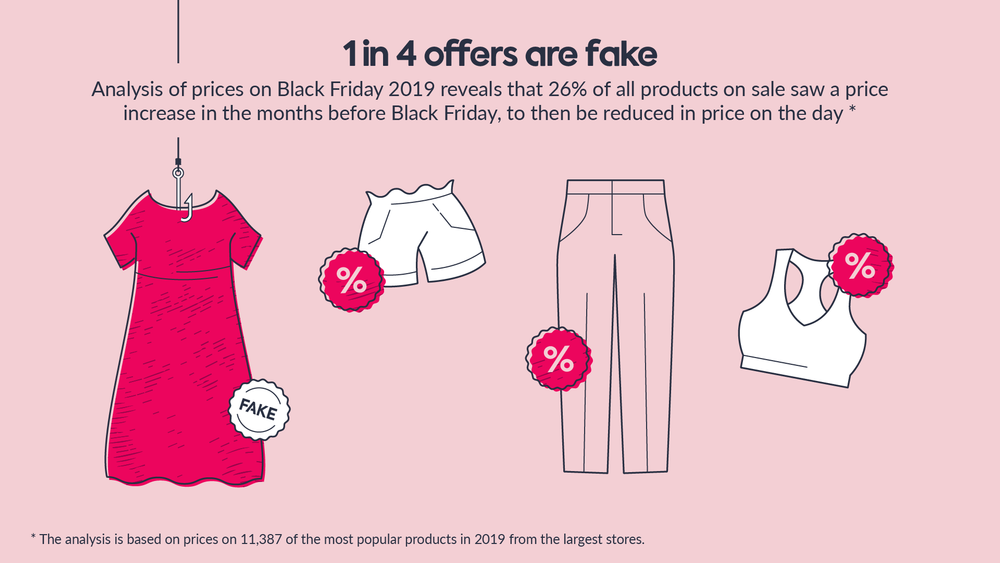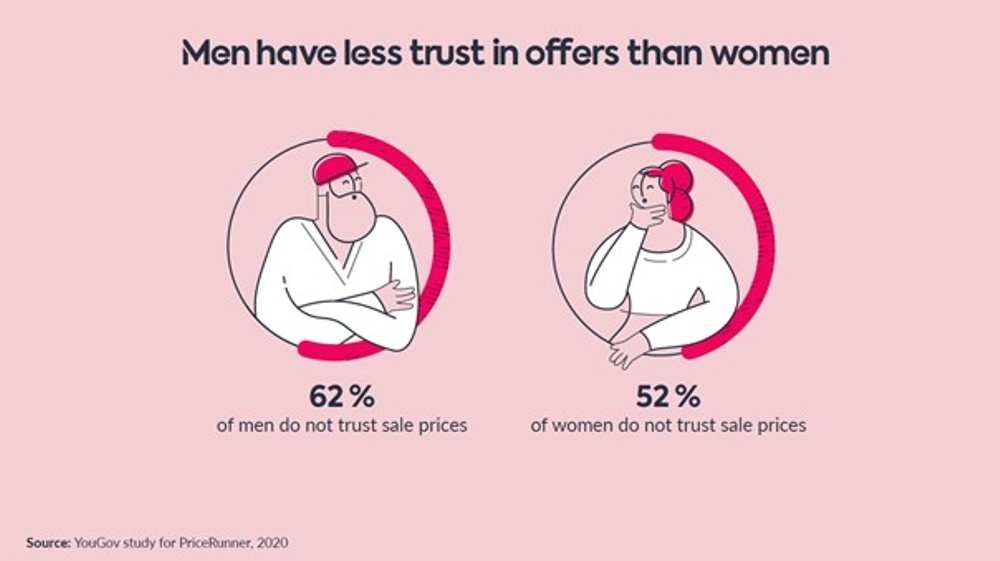8 out of 10 Brits sceptical towards Black Friday offers
 Black Friday sale
Black Friday saleBlack Friday is without a doubt the biggest shopping day of the year. However, many Brits do not believe that Black Friday deals are as good as they seem. According to a new survey from YouGov, ordered by PriceRunner, 83 percent of Brits do not trust that offers on sale are as good as they seem or are not sure if they are real. They are quite right to be sceptical, as only one in five products reached their lowest price on Black Friday last year.
Wanting to understand the level of trust Brits have in retailers, independent comparison service PriceRunner commissioned a survey on 2,000 adults in the UK, carried out by global research and insights company YouGov in October 2020.
A majority, or 57 percent of Brits, do not believe that the "bargains" offered by retailers are as good as they seem. Another 26 percent said they do not know if they can trust Black Friday offers or not.
This means that a whopping 83 percent are sceptical towards retailers’ offers during Black Friday. You might even go as far as saying Brits would call it "Fake Friday" instead of Black Friday.
“We are shocked that so many Brits do not trust that the sale prices retailers advertise are genuine. This is clearly something the industry needs to address and think long and hard about if they want to keep customers. Retailers need to get that trust back by advertising prices more transparently and honestly”, said Christine Gouldthorp, Consumer Expert at PriceRunner.
Price analysis shows a high number of fake offers
Taking a look at the numbers, PriceRunner’s data proves sceptics to be right. They analysed more than 8,000 different products that were sold during last year’s Black Friday, finding that only 1 out of 5 products actually reached their lowest price on Black Friday in 2019.
After running the numbers again, PriceRunner’s research of another 11,000 products also showed that more 26 percent of items on sale during Black Friday last year were actually fake offers.
According to PriceRunner's analysis, a fake offer occurs when a product sees a price increase by at least ten percent in the period leading up to for example Black Friday, to then be reduced by five percent or more on the day.
"Our data showed that one out of four offers during Black Friday last year should not be considered real offers. Retailers are advertising products with great discounts when in reality they had a similar price a few months earlier, in some cases they even cost more during the sale than before it started. This is extremely unfair towards consumers and we want retailers to stop deceiving them", said Christine Gouldthorp.
The high awareness of fake offers amongst British consumers could mean bad news for retailers, as there are a few things consumers can do to avoid getting tricked during sales seasons.
"We see this sales tactic more often than one might think, used by retailers to give the impression that a sale is better than it actually is. Some prices were actually cheaper before or after last year’s Black Friday sale, making it even important to compare prices before you buy. Not only should you check between retailers but also historically, seeing if the sale is actually the best time of year to buy”, said Christine Gouldthorp.
When it comes to trust, which is the most sceptical gender?
According to the survey, 62 percent of men and 52 percent of women in Britain do not trust offers advertised during sales seasons. Brits aged 45-54 trust Black Friday deals the least, where as many as 63 percent do not trust offers.
The YouGov survey also showed that 26 percent of Brits still plan to take part in the Black Friday sale this year. That makes Black Friday the most popular of this years’ seasons, as only 16 percent plan to take part in the Boxing Day sales and 15 percent Cyber Monday sales.
Local lockdowns and restrictions are also changing the way Brits shop. A third of respondents, 29 percent, plan to spend less in physical stores during the coming sales season compared to last year. Since the pandemic started, half of Brits now shop more online in general and 55 percent shop less in physical stores.
About PriceRunner
PriceRunner is the UK's independent price comparison service with over 1,600,000 products from more than 5,000 retailers. PriceRunner was founded in 1999 and is primarily active in Sweden, Denmark and the UK. We are a team of 150 ambitious PriceRunners who work to develop the most loved service for comparison shopping. PriceRunner is completely independent; we are not owned by or dependent on any manufacturer, retailer or other organisation that might have an interest in providing biased information. PriceRunner's mission is to help consumers find better products and better prices. Every month we help hundreds of thousands of consumers to find better, cheaper products and save money by comparing prices for a particular product.


